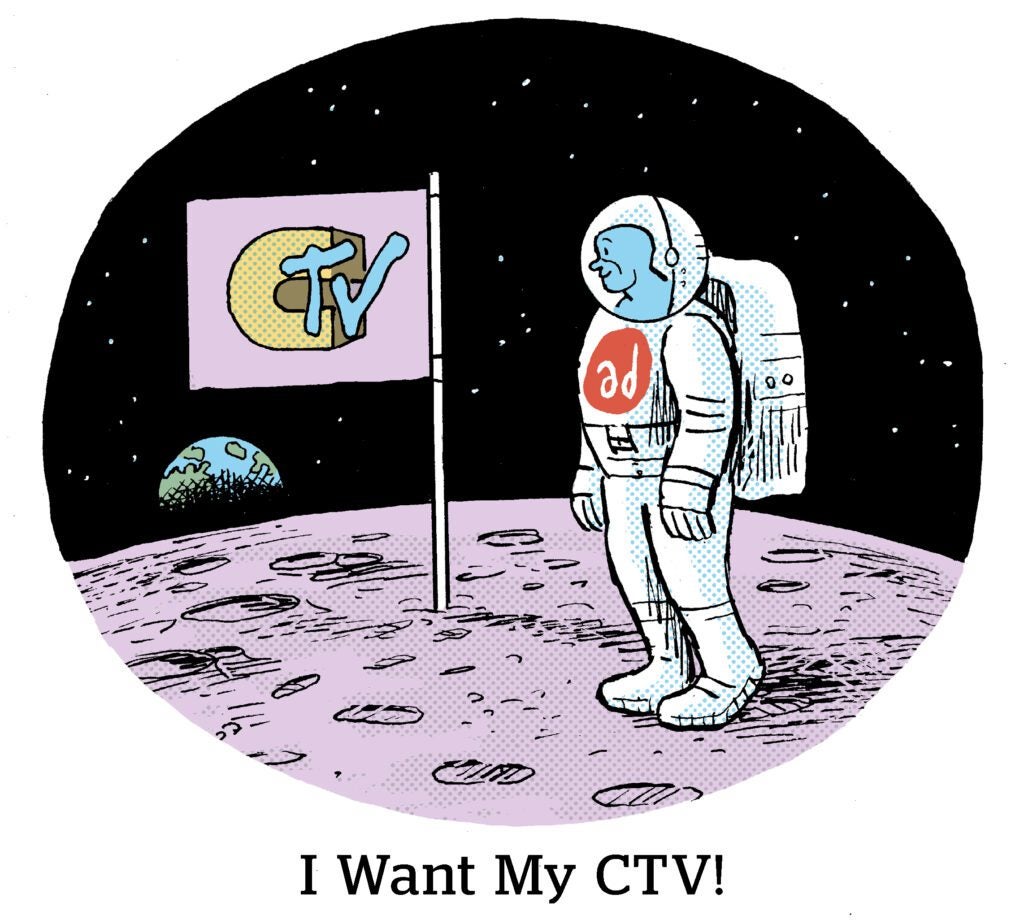Magnite earned $155.8 million in Q1, ticking up from $149.3 million in the period a year ago, according to the company’s earnings report on Wednesday.
The company’s fastest-growing segment is CTV, which grew from $54.9 million a year ago to $63.2 million as of Q1 2025. Its mobile business stands at $58 million, while desktop advertising totals $24.6 million. That leaves about $10 million spread across channels like out-of-home media and streaming audio.
The company is not reaffirming its 2025 guidance, though. In other words, it’s not committing to the growth forecasts it set earlier this year. However, Magnite is optimistic that major swings in the programmatic ecosystem could benefit its independent supply-side tech.
Google’s junk, everyone’s treasure
The big news coming out of Mountain View, California, recently could benefit Magnite on multiple fronts.
When it comes to third-party cookies on Chrome, Google’s plan to reverse course and allow cookies to persist is neither here nor there, per Magnite CEO Michael Barrett.
“Forget Privacy Sandbox,” Barrett said. “That thing was dead upon arrival.”
But the market’s need for cookieless solutions remains, he added. Safari is still a big piece of the mobile web, especially in the US market. And CTV impressions don’t carry cookies.
However, third-party cookies are useful, if not critical, for data-driven advertisers buying CTV. Streaming ad identifiers often focus on the household or IP address, which is sensible for TV advertisers. But third-party cookies are still a common matching mechanism in the identity graph, or provide any cross-channel tracking.
The big opportunity for Magnite, though, is how US District Court Judge Leonie Brinkema, the DOJ and Google hash out remedies in the ad tech antitrust trial. If you haven’t heard, Google it.
By Magnite’s own internal benchmark, the company holds a mid-single-digit share of the SSP market. Which doesn’t sound like much, though Magnite is the No. 2 player in the category. Google’s publisher ad server and SSP has more than 60% share, Barrett said. One back-of-the-napkin way to gauge the opportunity, he said, is that every 1% of the market Magnite can pick up will mean adding about $50 million to its bottom line.
What’s more, he said that a more competitive auction with Google should ease Magnite’s data warehouse costs.
Magnite spends heavily to see a high number of impressions, most of which it doesn’t win. “We’re already looking at all the same ad requests that Google’s looking at, and so we have expended most of our cost today in looking at those ad requests,” Barrett said. If it wins share of the SSP market and has a more equal footing with Google, Magnite will win a higher share of ads – its fill rate will go up – without having to spend more to see more impressions.
Magnite’s macro
There are non-Google changes to programmatic, too, that benefit Magnite.
Laura Martin, internet equity analyst at Needham, asked about a trend she heard of data sellers shifting their point of sale in the programmatic supply chain from DSPs, where data marketplaces traditionally are housed, to the SSP.
“Are they delusional?” she said.
They are not delusional, Barrett responded. The idea isn’t necessarily to cut out the DSP, but he said data sellers are starting to test ways to package audiences and sell data within the SSP.
“We refer to it as curation,” he said.
It isn’t all sunshine. But even the headwinds aren’t as bad as investors might expect.
Magnite did soften its guidance, which Barrett described as being out of an “abundance of caution.” While CFO David Day called it “prudent to be cautious in this environment.”
Still, the supposedly painful reductions in ad spend haven’t materialized in the market. Not yet, at least.
At the recent Possible conference in Miami, for instance, Barrett said there were “very few concrete examples of a pause in spend or budget cut, just a lot of speculation.”
There have been pullbacks, he said, like European automotive companies that stopped shipping cars to sell in the US. But those have been marginal and mostly balanced out by additional spend by US auto brands marketing as “made in USA.”
Barrett recounted that a marketing leader at one of the largest advertisers in the world said their company is “going to eat everything until June,” meaning the company will absorb the additional tariff-related costs until then, before passing on the costs with price raises.
“So everyone’s just kind of saying, ‘We’re holding steady,’” he said. “But if everything goes through the way it’s supposed to, it may not be as pretty as it is right now.”
















